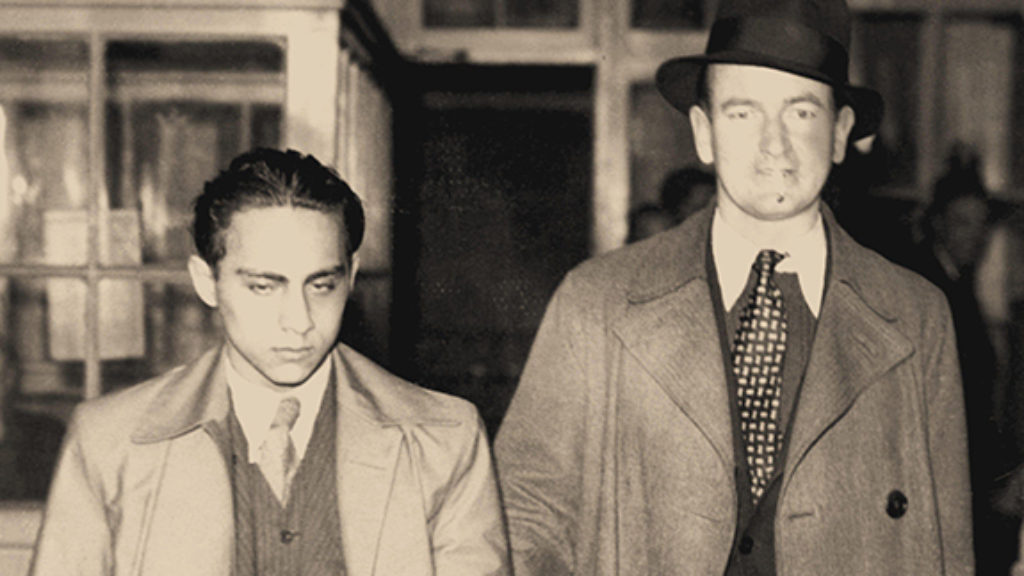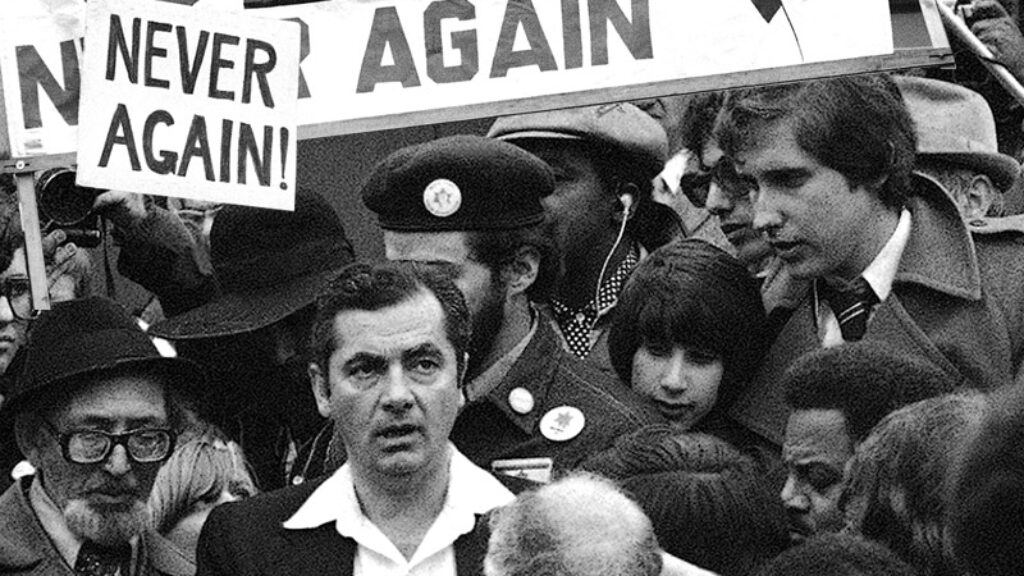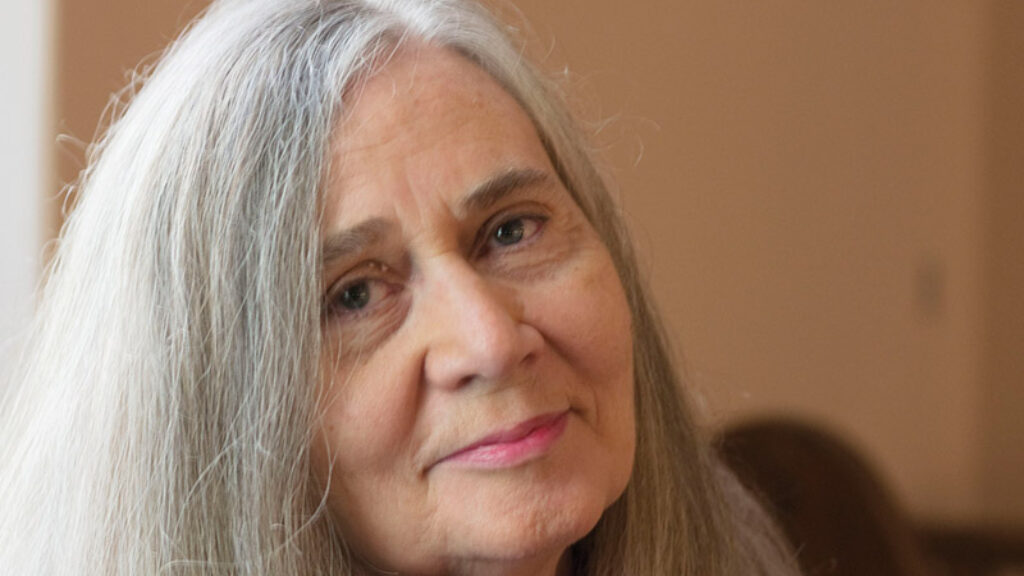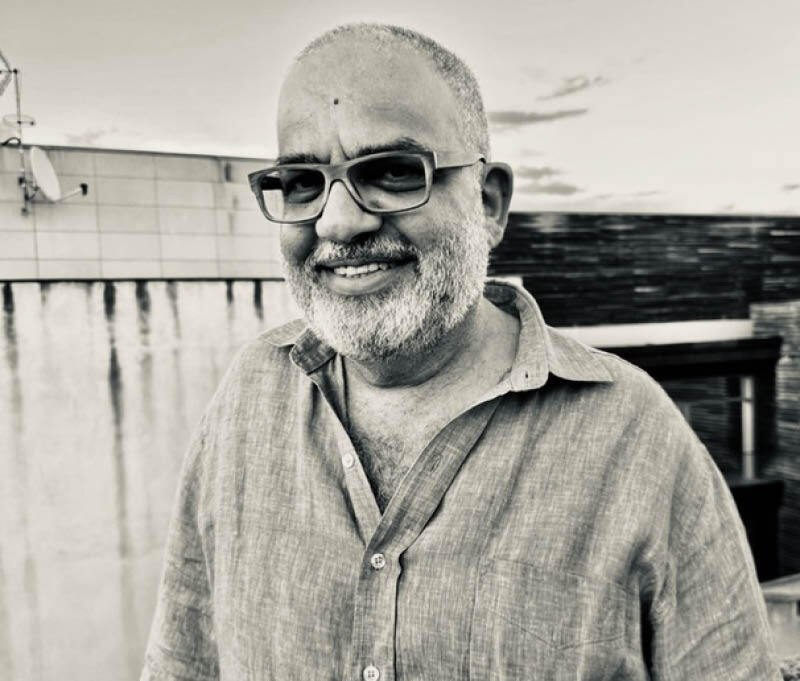Ruby Sees Red
A conversation with the Israeli American novelist Ruby Namdar about the novelistic plight of American Jewry in the aftermath of October 7.
SHAI SECUNDA: How have you been coping since October 7?
RUBY NAMDAR: I’m still trying to wake up from this nightmare. I walk in the streets. I see parents with babies. I can’t look. I walk in Riverside Park, I see an older man hugging his granddaughter, and I almost start crying. We have been forced back into Jewish history, into the bloody raw part of Jewish history.
SECUNDA: It’s hard to fathom.
NAMDAR: The shadow of Jewish trauma is long and deep. It goes all the way back to the destruction of the Jerusalem Temple. There are many formative events in the history of Jewish suffering. There were the Crusades, there was the expulsion from Spain. My own ancestors in Iran suffered horrific trauma and were forced to convert to Islam, living four or five generations as hidden Jews in Mashhad before we could return to Judaism. But I want to focus on the two Jewish collectives that are deeply traumatized in two different ways: Israelis and American Jews.
There is plenty of trauma in the particular history of Ashkenazi American Jews, most importantly the terrible pogroms at the end of the nineteenth century and early twentieth century. The Jews that left that impoverished piece of land—the Pale of Settlement—bore deep psychological scars. The descendants of these refugees from East European pogroms make up the bulk of American Jewry today. They eventually overshadowed the German Jewish immigrants of earlier in the nineteenth century as well as the original Sephardi communities.
At the same time, another significant group of refugees from Eastern Europe were the Jews who arrived in Palestine, which became the kernel of what would become Israel.
In other words, there were two massive migration waves of Jews out of Eastern European trauma. One went to America, the other to Palestine. And the way these two collectives dealt with their trauma was very different. We see this difference now. It’s fascinating how a collective mind reforms itself, reinvents itself. That’s why I feel it’s such a novelistic moment: a collective self-reinvention in order to dissociate from the trauma.
SECUNDA: How were they different?
NAMDAR: For the Jews who came to Palestine, this is the story of Zionism, which is a macho overreaction to the trauma. Zionism tries to create a “New Hebrew” that bypasses the diaspora and goes straight back to the Bible.
SECUNDA: And to the more “heroic” parts of the Bible.
NAMDAR: Right. We’re not going to call our children Avraham and Yitzchak and Yaakov—we’re going to name them Yoav and Avner, army generals and warlords. Listen, I am a Zionist, more now than I ever was, but it was a great overreaction. A constructive dissociation, if you will, in response to being unable to live with the shame of being a victim.
SECUNDA: How about American Jews?
NAMDAR: American Jewry dealt with things differently. As antisemitic as the US was when the immigrants began arriving, it still was a heaven compared to Europe. Jews were now emancipated to an extent that they could never have imagined. And so that strand of American culture, its liberalism, its pluralism, its inclusivity, became their lifeline and their ladder from which they could climb into a new life, a new collective self. And they have internalized it as a central part of their own Jewish identity. While the traumatized Israeli Jewish collective chose the aggressive and ultra independent path of self-redefinition, American Jewry became invested in becoming fully accepted and acculturated.
American Jews became so accepted that eventually, they came to be thought of as white. In Europe, nobody thought of Jews as whites. Jews were Asiatics. They were, at times, abject untouchables. But their great project was to emerge from the trauma by being accepted, becoming liberal, and re-creating themselves as upstanding white citizens. The kind of person or family who, by the 1950s, could live in a suburb, be part of the broader social life, maybe spend Saturdays in the country club rather than in shul.
SECUNDA: But even with different trajectories, American and Israeli Jews have long been closely linked.
NAMDAR: True. For a while, these two collectives could still communicate because they shared a memory of trauma. They also shared one more thing: a guilt game. There’s a guilt game in almost every Jewish family. We Israelis have our own fair share of this manipulation: “You guys went to America; you made it.” The Zionists say, “We are the ones holding the line. When you Americans wake up one day to another Holocaust, you’re going to want to run here to Israel.”
American Jewry played along, especially because they found it unbearably shameful that they did not help, or were not empowered enough to help, their brethren in Europe during the Holocaust. There’s a whole al chet, a mea culpa.
SECUNDA: A kind of double survivor’s guilt?
NAMDAR: That’s right. Survivor’s guilt from people who left their family in Eastern Europe during the pogroms, then more guilt that they could not help their people during the Holocaust. As a result, the bulk of American Jewry put all its energy—even the Reform movement that was a little stubborn in the beginning about Zionism—into Israel. For a couple of generations, there was an alliance between the Zionists in Israel and American Jews. And it worked. It also allowed many American Jews to not do anything else Jewishly. We support Israel, we plant trees, we put money in the Jewish National Fund charity boxes. That’s our Judaism.
SECUNDA: So what about now?
NAMDAR: Some very strange and terrible things have happened since October 7. They’re horrific but also fascinating in their horror. First is the nature of the attack. It was a pogrom. This is not accidental. What Hamas did on October 7 was to take us back to Kishinev, the raping, murdering, maiming, all the recipes from the sadist’s cookbook. And everything was on camera, a sick deliberate performance, a monstrous art installation, whose goal was to undo all the Jewish, all the Israeli self-empowerment that has been the work of generations.
What happened to American Jewry, almost simultaneously, was noteworthy. As is what happened to the global left and the American Jewish left. Right after the atrocities that were committed against horrific numbers of Jewish women, children, babies, old ladies, and more, and before Israel shot the first shot, before Israel had a chance to fuel the airplane that dropped the first bomb on Gaza—an enormous wave of antisemitism, anti-Israelism washed over us. Soon, the word “genocide,” of all words, was thrown into the symbolic space and caught fire.
Now that’s interesting. Think of it as, as a novelist, think of it as a psychoanalyst. Genocide? Wait a minute. Wasn’t this what just happened to the Jewish victims of October 7? Wasn’t Hamas trying to restore our memory and trauma of genocide? The cognitive dissonance was so enormous that no one could deal with this label when it came to Hamas’s actions. And yet, this label, which was mainly engineered by the American Jewish left, spread like a wildfire when it was attributed to Israel.
But why and how did the Jewish left in America do so willingly? How is it that the young generation of American Jews so eagerly, so desperately, clung to this strange, grotesquely absurd claim that Israel is committing genocide? Well, this generation was raised on the liberal, progressive, or radical ideas that were often at variance with traditional Jewish values. The main Jewish idea that they received was you have to worry about persecuted minorities and indigenous peoples. They could no longer accept the idea that one first supports one’s own, since they had been told, and accepted, that Jews were a part of the white, colonizing, oppressive class.
This turns out to be the gust of wind that is going to make the mighty tree fall. The result will be a break not only between American Jewry and Israel, but it’s going to be a major schism inside American Jewry.
SECUNDA: I’ve just read your new Hebrew book, Big Fish, which explores this intergenerational break.
NAMDAR: One of the main stories in the collection is called “Abba,” a story that took me a long time to write because I felt like I was touching so many raw nerves.
The story begins with an Israeli man named Giora who lives in an ugly little house in New Jersey. Not a very successful man, never really made it in America. On Christmas morning he gets a phone call from another Israeli friend who tells him that his estranged daughter was seen in a certain, terrible place, and that he should go fetch her.
That’s the dreaded phone call. The story then follows the travel of this poor guy, up Route 87 while a big snow storm is coming from the north. He’s an insecure, aging man; his car is not made for this weather; and as he’s driving, he recalls the story again, maybe for the millionth time, of what happened, what actually happened that led to their estrangement. Much of the heartbreak is cultural and, especially, generational.
SECUNDA: It reminds me a bit of Roth’s American Pastoral, which is the story of the estrangement between an American Jewish father and his out-of-control daughter.
NAMDAR: That’s right. We live in a world in which cultural continuity between generations doesn’t really exist. Just a few generations ago, people used to hold relatively similar ideas and values to their grandfathers and great-grandfathers. With modernity, with the acceleration of communication and fast-paced ideas, the pace of change has become ever more rapid, which leads to a new level of alienation, and this alienation is tragic.
SECUNDA: So, what we’re experiencing with the younger generation now isn’t just the old cliché about “the kids these days”?
NAMDAR: No, no, no. It’s much, much bigger. Much more radical.
Which brings me back to the novelistic aspect of our situation. The fact that not only do the generations not share the same set of facts; we don’t share a vocabulary, and we don’t share a narrative. Our language is different.
We’re confronting a new monstrous version of the Tower of Babel. Many Jewish parents in America now—who are themselves liberal, progressive, good people who want the good of humanity and raised their children accordingly, to be so socially conscientious, to try to not be tribal, to try to be evolved—are now in an impossible situation. When you are a small minority that is already an endangered species, as we Jews are, these ideas can become dangerous, one might even say suicidal.
Now, the Jewish kids whose grandfathers weren’t allowed to walk in a country club or hotel, who were once just a few steps away from the situation of African Americans, now believe that to support Israel is to support a white country that oppresses people of color. The Jewish homeland is seen as white and can no longer be supported. The strange Jewish journey toward whiteness helps explain how such a large part of the young Jewish generation has abandoned Israel.
SECUNDA: Do you think this is the only path for this progressive generation?
NAMDAR: I don’t think it’s everyone, all young progressives. Many will just stop being Jewish. It’ll be like “enough with this. I can’t take it anymore. This is too complicated. I’m the second generation of mixed marriage. We never go to synagogue. It doesn’t really mean anything.” At the same time, there’s going to be a new progressive Jewish elite, one that’s already forming, that is going to become even more Jewish but in a very oppositional way. And they are going to base their entire Jewish identity on being anti-Zionists.
If we’re going back to Roth’s American Pastoral, do you remember the father’s nickname? He was “the Swede.” Because he looked and felt so white. He was the first Jew from the town that “passed.” And that’s the kind of person whose daughter—“Merry,” in the novel—becomes an anarchist.
In a way, I think American Pastoral was a prophetic novel. Every work of real literature has a certain prophetic element. Sometimes I think, irrationally, that it’s all the novelists’ fault—that if we hadn’t written the books, then the bad things our fiction prophesied wouldn’t have happened.
Comments
You must log in to comment Log In
Suggested Reading

A Different Kind of Hero
The Nazis may have blamed Herschel Grynszpan for Kristallnacht, but he prevented them from using him in a show trial.

Are We all Kahanists Now?
Shaul Magid attempts to show us how much contemporary Jews have inherited from a man most have tried to forget.

Light and Darkness
A great novelist and close reader of Calvin, , Marilynne Robinson has now written a luminous commentary on Genesis.. But is her God more predictable than the God of Abraham?
The Last Bedtime Story: Roz Chast’s Sort-of Tour Guide
Realizing that her daughter knows nothing of the urban wilderness her mother once inhabited, Roz Chast takes it upon herself to bequeath her accumulated wisdom in the method most natural to her, a comic book.

[email protected]
DEMOCRATS, REPUBLICANS, PROGRESSIVES AND THE NEW LEVIATHAN
Those who dwell beside the waters
Democratically are blue,
while Republican supporters
inland find their right milieu.
Creator of the waterworld,
God decreed two human races,
one that keeps the flag unfurled,
spreading out in inland spaces,
one that looks for inspiration
to the Germans and the French;
where, in this divided nation,
can you still descry a mensch?
Think hard on this mystery:
though to soil God made men slaves,
geography is history,
so Leviathan rules waves,
and earth's leviathan called Russia,
whose size all other lands exceeds
now aims again to be a crusher
of others with post-pravda creeds.
The above words in two thousand four,
when I wrote them, seemed quite true,
Now their conclusion I deplore,
for a leviathan that’s new
is one I fear is undermining
the liberal world in which I used
to live, and rapidly declining,
reactionarily reduced
to a sad travesty of what was taken
for granted and may be reversed
completely, unless we awaken
in the leviathan a thirst
for civil freedoms people quench
with progressive programs planned
like those of revolutionary French
causing freedom to be banned.
Democracies must not permit
the new leviathan to rule.
Anciens régimes have the remit
to ban ideas when ridicule
is not enough to make sure folkish
fanaticism does not cause
unwisdom that is wrongly wokish
to break leviathanic laws,
to Jerusalem not hobbling,
a new leviathan whose shame,
vociferously populing,
unwise electorates proclaim.
Roz Shorenstein
Superb interview. It really resonates with what I see in California as I try to advocate against antisemitism in school board meetings and city council meetings, where local members are besieged by misguided members of public, viciously antizionist UC Ethnic Studies faculty, students, etc. I want to read Ruby’s book of stories. Thank you